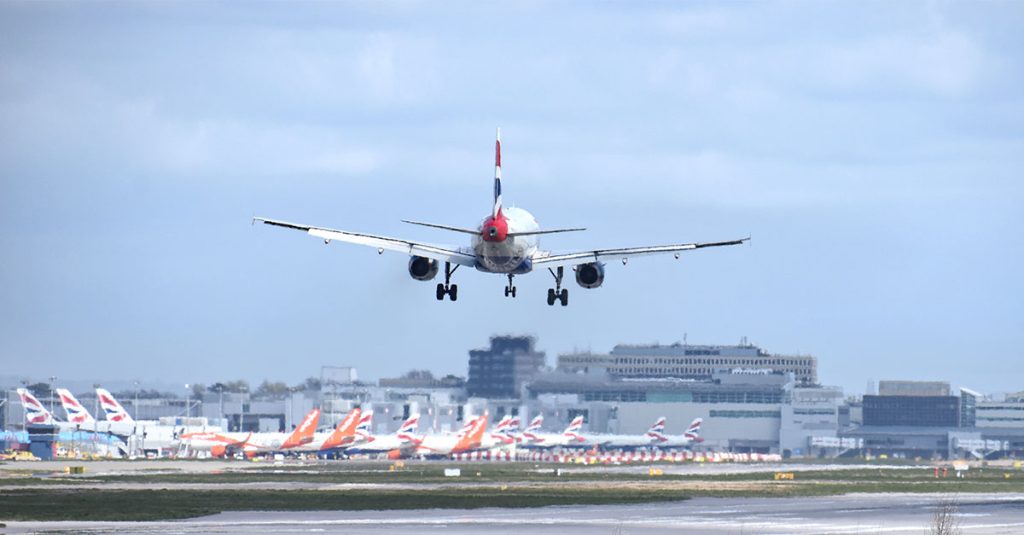In a significant development for Gatwick Airport’s catering services, recent potential industrial action has been averted due to successful negotiations. This resolution highlights the power of effective dialogue between unions and management.
The announcement comes after Unite, a leading trade union, secured the reinstatement of shift allowances for dnata catering staff at Gatwick. This marks a crucial victory for workers who had faced substantial pay reductions due to earlier cuts.
Background of the Dispute
The conflict arose when dnata removed shift allowances, resulting in a pay cut of £1,500 to £2,000 for employees. This change affected numerous workers and prompted the union to consider strikes as a necessary measure.
The shift allowance was an integral part of the workers’ remuneration package, and its removal disrupted the financial stability of many employees. Unite, representing over 100 affected workers, initiated industrial action as a response to this significant pay cut.
Union’s Role and Strategy
Unite played a pivotal role in reversing the pay cut at Gatwick. The union’s strategy focused on negotiations aimed at reinstating shift allowances, which was crucial in averting the strike.
Sharon Graham, Unite’s General Secretary, emphasised the importance of protecting union members from unjust changes. She stated, “Unite never tolerates attacks on our members’ jobs, terms or conditions.” This strong stance was fundamental to the union’s negotiating approach.
The outcome showcases the strength of collective bargaining, highlighting how organised efforts can lead to positive outcomes for workers.
Impact on Airlines and Passengers
The potential strike posed significant challenges for airlines such as easyJet and Tui, which depend on dnata for in-flight catering services.
Without a resolution, there was a real risk of disruptions in service, leading to flights potentially operating without standard catering provisions. This would have directly impacted passenger experience, especially during peak travel times.
The cancellation of the strike thus helped maintain continuity in services, ensuring that passengers continue to receive expected amenities without inconvenience.
Company Response and Commitment
In response to the situation, dnata expressed satisfaction with the vote in favour of its improved offer, leading to the cancellation of the planned industrial action. This indicated a collaborative effort to meet employee expectations and secure uninterrupted operations.
A spokesperson for dnata reiterated the company’s commitment to fair compensation, stating, “We are dedicated to providing each employee with fair compensation to recognise their contributions to the company.” This commitment is part of a broader strategy to remain a preferred employer in the aviation service sector.
Financial Implications and Future Outlook
The reinstatement of shift allowances carries financial implications for dnata, yet it underscores the importance of valuing employee welfare to avoid future disputes.
Looking forward, dnata aims to invest in its workforce and infrastructure, ensuring a motivated employee base and high-quality service delivery. This approach aligns with its long-term vision to be a leader in the aviation catering industry.
The resolution serves as a precedent for future negotiations, illustrating the effectiveness of dialogue in resolving labour disputes.
Role of Workplace Representatives
Unite’s dnata workplace representatives were pivotal in reaching the resolution, demonstrating the efficacy of having proactive employee representatives.
Dominic Rothwell, Unite’s regional officer, acknowledged the hard work of the reps, stating, “This result could not have been achieved without the hard work of Unite’s dnata workplace reps.” This highlights their crucial role in advocating for workers’ rights and catalysing change.
The efforts of these representatives reflect the essential support that unions provide their members in negotiation processes.
Reactions from Key Stakeholders
The successful resolution has been positively received by employees and union representatives, as it restores financial stability and recognises employee contributions.
Stakeholders emphasise the importance of maintaining open lines of communication to prevent future disputes, promoting a collaborative environment.
The resolution of the Gatwick catering dispute underscores the potential of constructive union-company negotiations. By reinstating shift allowances, the agreement represents a victory for workers’ rights.
This outcome sets a positive precedent for resolving similar disputes in the future, highlighting the importance of dialogue and partnership. As both dnata and its employees look to the future, this agreement strengthens their continued collaboration in delivering quality services.

